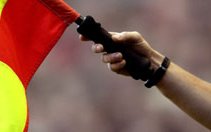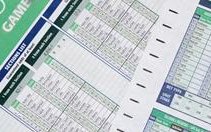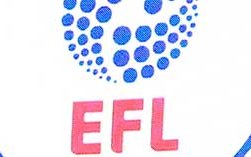Midweek dispatch: Why Cowling could be calling Colchester`s bluff
Running a football club is not like managing a normal business. Perhaps it is acceptable, then, that Colchester United`s new owner Robbie Cowling is a “life-long West Ham fan,” and declares his favourite sport as running because: “They know how to win, they know how to lose.”
Owner of Tiptree-based online recruitment company Jobserve, Cowling is a man who knows all about the win-lose equation of life. He is an astute businessman, whose company turnover is typically between £ 9 – 15 million per annum.
His takeover of Colchester United, for an undisclosed fee, in September was a low-key affair, especially when compared with the many others that have taken place over the past year. At Colchester, there have been no discernable changes yet, either in the boardroom or financially.
“The structure of the deal reflects Peter Heard’s devotion to the club and my long-term commitment to help support the club financially,” Cowling said at the time. Heard was surrendering control of a club he has overseen for the past nine years and stability was ensured as all active board members were invited to stay on at Layer Road.
If 2006/7 is to be remembered as being the year of the takeover, then Robbie Cowling has a link with one of the most prominent of all – at his beloved West Ham. Jobserve.com are currently the Hammers` shirt sponsors, where new owner, Eggert Magnusson, infamously told Alan Pardew he would ‘slit his throat` if successes was not immediately forthcoming.
Cowling did not claim anything of the sort when arriving at Colchester, instead apparently opting to bide his time. Based on a rough estimate of turnover gained form his Jobserve exploits, Cowling should be worth £40 – 50 million, which, understandably, played a large part in the positive reaction his purchase of the club attracted in the autumn.
Now though, fans are beginning to wonder how beneficial it will actually be for Colchester United, especially in the short-time. Perhaps this is because punters have come to equate takeovers in football as a gateway to gaining an injection of instant cash.
Manager Geraint Williams was unable to indicate recently if there would be ‘substantially more` money available to spend during the transfer window, and, obviously, a slice of Cowling`s personal fortune would not go as far as that of, say, Roman Abramovich. His Chelsea side made a staggering loss £140 million loss in 2005, but still won the League title.
That shows that money alone does not win key football matches, and seems to prove that the success of Colchester United this season has had nothing to do with Robbie Cowling`s investment in – or ownership of – the U`s. That is not strictly true, because the businessman`s decision to learn the ropes, prior to making ad-hock decisions, is savvy, which has done the club a huge favour.
As the Chelsea cash shortfall highlights though, a clubs general capacity for consuming vast amounts of money – rather than generating it – reminds us that the majority of FCs do not yield high dividend payouts year-on-year.
The main consideration for an investor, tough, must always be of profit and gain. What does Cowling stand to get, against potential losses, by owning United? To quote one article on the subject of club ownership, which appeared in the football monthly When Saturday Comes: “The underlying asset value of rare goods can rise exponentially, as Terrence Brown recently found to his benefit, his share of West Ham United being deemed worth £33 million.”
A clinical assessment of Cowling, then, is that he is an executive of balance sheets and revenue, perhaps an opportunist, a gambler. Cowling is certainly not an oligarch with more money than sense. He is no U`s fan either.
None of that seemed to matter as Cowling spoke to the Evening Gazette recently: “There are many areas of the club I would like to help improve over the next few years, such as new training facicalities and equipment,” he said. “The club has been financially sound for sometime, but I have been able to make it more robust.”
A personal suspicion is that Cowling intends to make a windfall from a potential ascendancy to the Premiership, and, someway down the line, perhaps instigate floatation as a PLC on the stock market. Forgive this cynicism, but since Colchester United were probably a relatively cheap acquisition on football`s spectrum of large-scale (and usually grotesque) investments, it makes financial sense to assume that Cowling aims to put himself in the red.
Maybe the previous assessment of his motives is slightly skewed, but Cowling does not stand to lose much; if a few million go amiss, and the initial investment goes wrong, he can jump ship.
There is no obligation to object to someone obtaining a business solely to make a few bob, since commerce deals do not have take into account emotional allegiance. But, it is a point to consider, even if we are not yet dealing with recriminations on the scale Leeds United.
The mind wanders back to Mohamed Al Fayed`s assertion, almost a decade ago, that he had always been a “life-long Fulham fan” upon purchasing the London club, despite it being well-documented, just weeks beforehand, that he had failed in an attempt take control of Chelsea. At least Cowling has not promised to pump millions into a club with which he will never have a true affinity.
If you thought, however, that Robbie Cowling was doing United a favour in taking charge, think again. He is not a villain just yet, but he obviously has designs on the club. He has bought the club for a reason: which would not include frittering away a personal fortune, by pouring it down a huge footballing hole, in Essex.
Share this article



